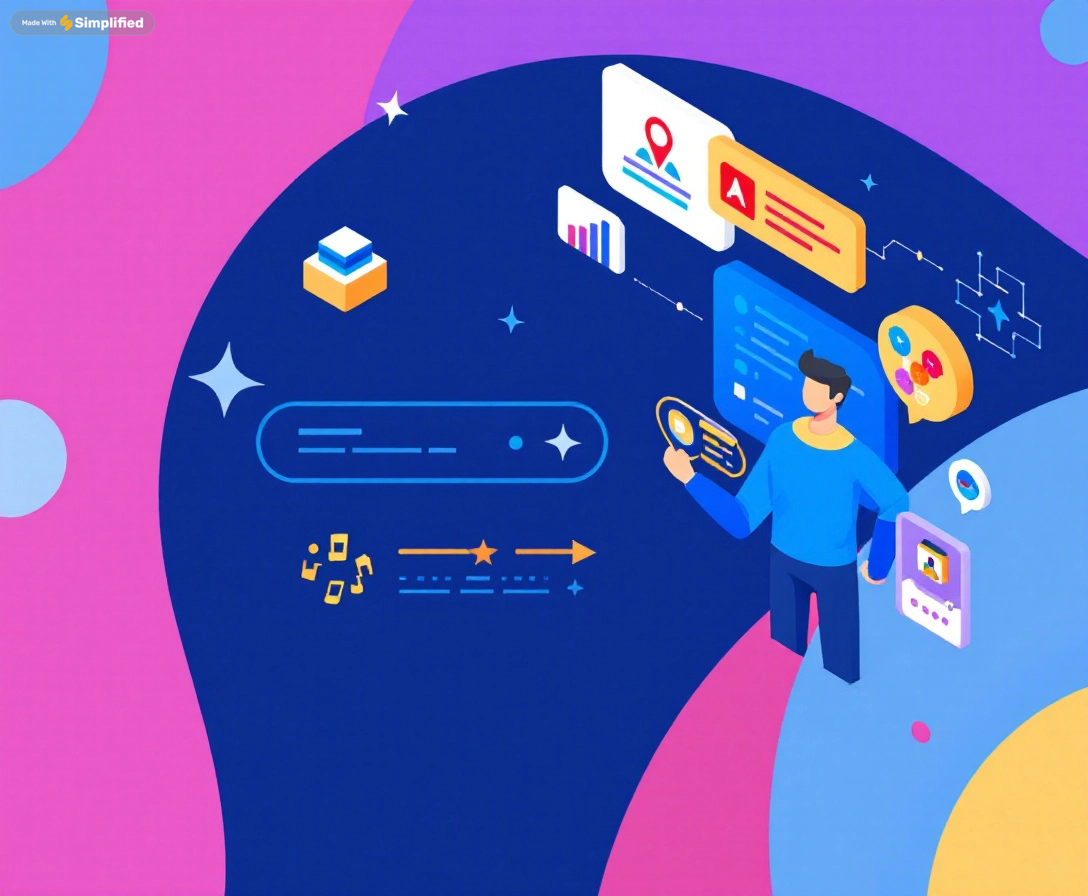April 2025 will be remembered as a pivotal month in the evolution of artificial intelligence, particularly within the Google ecosystem. The tech giant unleashed a wave of groundbreaking updates, seamlessly integrating more powerful AI models and innovative features across its core products and services. From a dramatically enhanced search experience to cutting-edge creative tools and the dawn of collaborative AI agents, these advancements signal a significant leap forward in how we interact with technology. Let's delve into the details of these transformative changes.
The Powerhouse Within: Gemini 2.0 Takes Center Stage
At the heart of many of these updates lies the integration of Google's latest and most advanced AI model: Gemini 2.0. Building upon the impressive capabilities of its predecessor, Gemini 2.0 brings a new level of sophistication, speed, and multimodal understanding. This enhanced model is now the engine driving several key features, promising a more intuitive and insightful user experience.
One of the most visible impacts of Gemini 2.0 is within Google Search. The introduction of significantly enhanced AI Overviews marks a paradigm shift in how we access information. Gone are the days of sifting through endless links for complex queries. Now, users receive comprehensive, AI-generated summaries that synthesize information from multiple reliable sources. What's truly remarkable is Gemini 2.0's ability to handle nuanced questions, including those involving coding snippets, advanced mathematical concepts expressed in LATEX, and queries that blend text, images, and video. This promises to be a game-changer for researchers, students, and anyone seeking in-depth answers quickly.
Furthermore, Google has launched an experimental AI Mode within Search. This isn't just about generating summaries; it's about fostering a more conversational and exploratory search experience. In AI Mode, users can engage in follow-up questions, refine their queries based on the AI's initial response, and delve deeper into topics with the AI acting as a knowledgeable guide. Crucially, this mode still provides links to the original web sources, encouraging users to verify information and explore further. This blend of AI-powered synthesis and access to the broader web represents a thoughtful approach to the future of search.
Unleashing Creative Potential with AI on Vertex AI

For creators across various domains, April 2025 brought a suite of powerful new AI tools within Google Cloud's Vertex AI platform. These advancements democratize content creation, making sophisticated capabilities more accessible than ever before:
- Veo 2: The Future of Video Generation: Generating high-quality video content has long been a complex and resource-intensive process. Veo 2 aims to change that. This new model allows users to create stunning and realistic videos from text prompts, opening up exciting possibilities for marketing, education, and artistic expression.
- Imagen 3: Elevating Image Realism: Building on Google's already impressive image generation capabilities, Imagen 3 pushes the boundaries of photorealism. Expect even more detailed, coherent, and aesthetically pleasing images generated from textual descriptions, with enhanced control over artistic styles and compositions.
- Chirp 3 with Instant Custom Voice: The ability to generate natural-sounding speech has become increasingly important. Chirp 3 introduces a groundbreaking feature: Instant Custom Voice. This technology allows users to create a personalized voice model with remarkable speed and accuracy, opening doors for customized audio experiences and accessibility solutions.
- Lyria: The Symphony of AI-Generated Music: For musicians and content creators seeking unique soundtracks, Lyria offers the power to generate original music across various genres and styles. This tool can assist in composing, producing, and even adapting music to specific needs, fostering a new era of AI-assisted musical creation.
These advancements within Vertex AI underscore Google's commitment to empowering creators with cutting-edge AI tools, streamlining workflows, and reducing the barriers to producing high-quality multimedia content.
Break the barriers - Productivity with AI in Google Workspace

The integration of AI isn't limited to search and creative tools; it's also transforming how we work. Google Workspace has received a significant AI-powered boost, embedding intelligent assistance directly into the applications we use daily:
- Enhanced Writing and Image Creation: The popular "Help me write" feature in Gmail and Docs has been further refined, offering more nuanced suggestions and the ability to generate longer-form content with greater coherence. Additionally, the new "Help me create an image" functionality allows users to generate visuals directly within these applications, streamlining content creation workflows.
- Smarter Communication in Chat and Meet: Google Chat now offers automatic summarization of conversations, allowing users to quickly catch up on ongoing discussions. Google Meet benefits from real-time automatic translation, breaking down language barriers in virtual meetings. Furthermore, features like "Take notes for me," "Studio sound/look/lighting," and "Translated captions" enhance meeting productivity and inclusivity.
- The Power of the Deep Research Agent: For users dealing with complex research tasks, the new "Deep Research agent" within Workspace promises to be a valuable asset. This intelligent agent can autonomously explore vast amounts of information, synthesize findings, and generate comprehensive reports, freeing up users to focus on analysis and decision-making.
- Automating Workflows with Workspace Flows and Gemini-Powered Gems: Google is introducing "Workspace Flows," a powerful tool for automating multi-step processes. What makes this truly innovative is the ability to integrate custom AI agents, dubbed "Gems," built with the power of Gemini. These Gems can be tailored to specific tasks and workflows, enabling a new level of automation and efficiency within organizations.
These AI-powered enhancements within Google Workspace aim to make users more productive, collaborative, and efficient in their daily work, transforming how teams operate.
The Dawn of Collaborative Intelligence: AI Agents and the A2A Protocol
Looking towards the future, Google is making significant strides in the realm of AI agents. These are not just passive tools but proactive entities capable of assisting with complex tasks and even collaborating with each other. The announcement of the Agent2Agent (A2A) protocol is particularly noteworthy. This open standard aims to enable AI agents to communicate securely, exchange information seamlessly, and coordinate actions across different enterprise applications. This has the potential to unlock entirely new levels of automation and collaboration, where intelligent agents work together to achieve complex goals.
Under the Hood: Advancements in AI Infrastructure
These groundbreaking AI features are underpinned by significant advancements in Google's AI infrastructure. The upgraded AI Hypercomputer architecture provides the necessary computational power and efficiency for training and deploying these increasingly sophisticated models. The introduction of the Ironwood TPUs, Google's seventh-generation Tensor Processing Units, further accelerates machine learning workloads, ensuring that these AI innovations can operate smoothly and efficiently at scale.
Personalization and Accessibility: AI for Everyone
Beyond the major feature announcements, Google is also focusing on making AI more personal and accessible. The Gemini app now offers personalization, leveraging your Search history (with your explicit permission) to provide more contextually relevant and tailored responses. Future integrations with other Google apps like Photos and YouTube promise an even more unified and personalized AI experience. Furthermore, ongoing enhancements to accessibility features, such as improved translated captions in Google Meet, demonstrate Google's commitment to ensuring that the benefits of AI are available to everyone.
A Glimpse into the Future

The AI updates unveiled by Google in April 2025 are more than just incremental improvements; they represent a significant acceleration in the integration of sophisticated AI into our daily lives and workflows. From revolutionizing how we search for information to empowering creators and transforming workplace productivity, these advancements offer a glimpse into a future where intelligent assistance is seamlessly woven into the fabric of technology. As Google continues to push the boundaries of AI research and development, we can expect even more transformative innovations in the years to come. The AI revolution is well underway, and April 2025 marks a truly exciting chapter.





